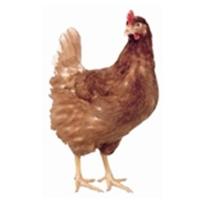UK studies advantages of Hy-Line breed in free-range units

UK researchers recently conducted an extensive study using 25 free-range flocks, participating in the Freedom Foods Programme.
The researchers measured bird attitude, activity and physical welfare over the laying period of the flocks, amongst other factors. Relationships of these observations to husbandry practices, type of housing and breed were also assessed. The study showed a greater adaptability to free-range units in the Hy-Line breeds.
Most efficient bird
According to Hy-Line, the company’s variety Brown has long been recognised as the most efficient bird available; no other bird lives longer, produces more first quality eggs, has a better egg weight profile, retains its feathers, has a better temperament and most significantly, consumes less feed.
Lower mortality
Hy-Line Brown flocks had significantly lower mortality than the combined results of a group of seven different competitive commercial varieties. Low mortality was also correlated with fewer off grade eggs “seconds†and rough eggs, and better body condition scores.
“The recent study reported in the British Journal, Veterinary Record, demonstrates the clear advantage of the Hy-Line Brown compared to other breeds used on British free-range farms, with all other breeds having double the mortality,” stated Hy-Line International’s R&D director, Dr Neil O’Sullivan.
Save feed costs
A recent commercial trial revealed that the Hy-Line Brown consumed 7 g less per bird per day than an alternative breed during the same laying period. When projected across a typical flock of 100,000 birds, this amounts to a saving of £47,000 or 0.47 p per bird over the course of a laying period.
Related links:
Hy-Line International











